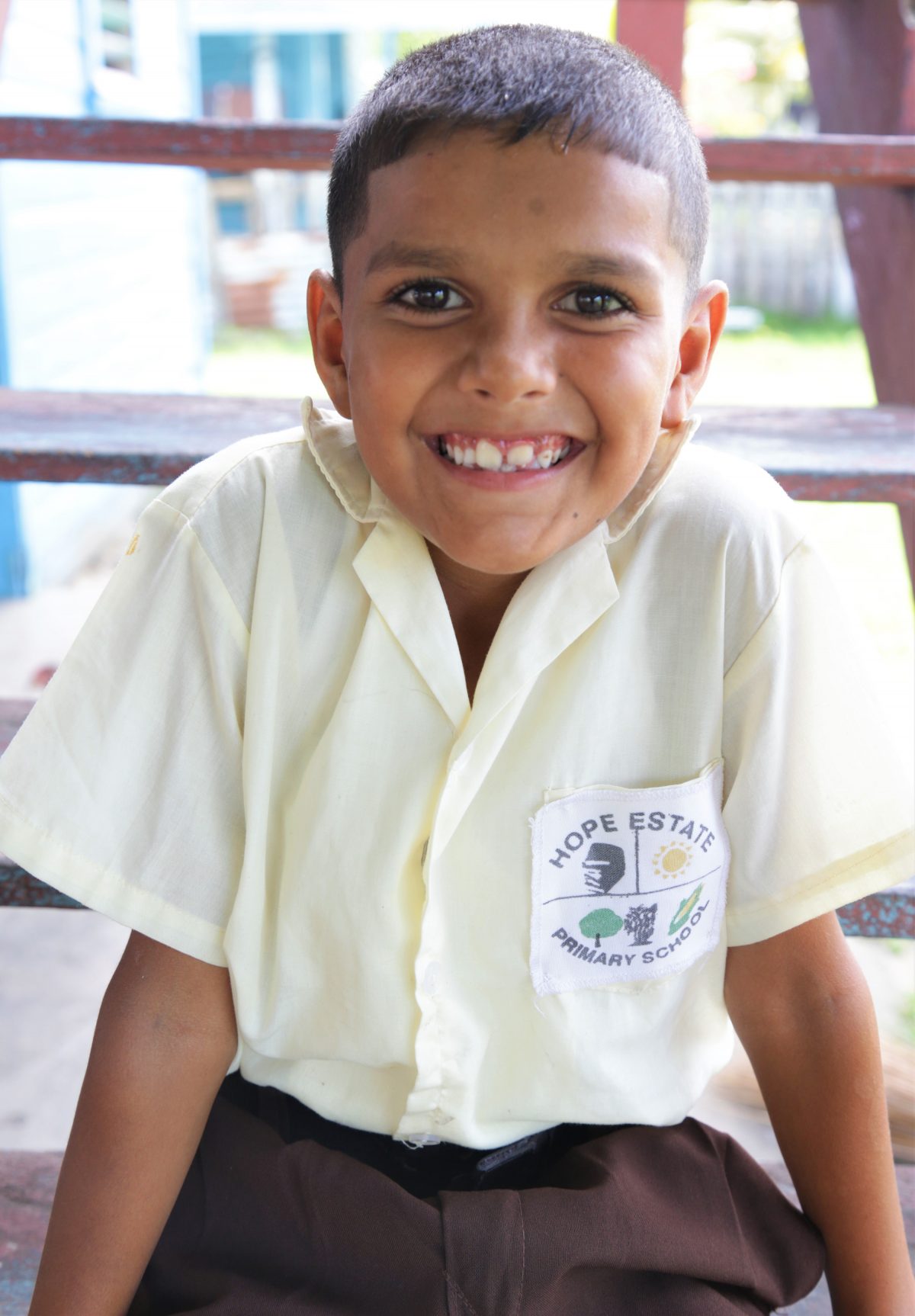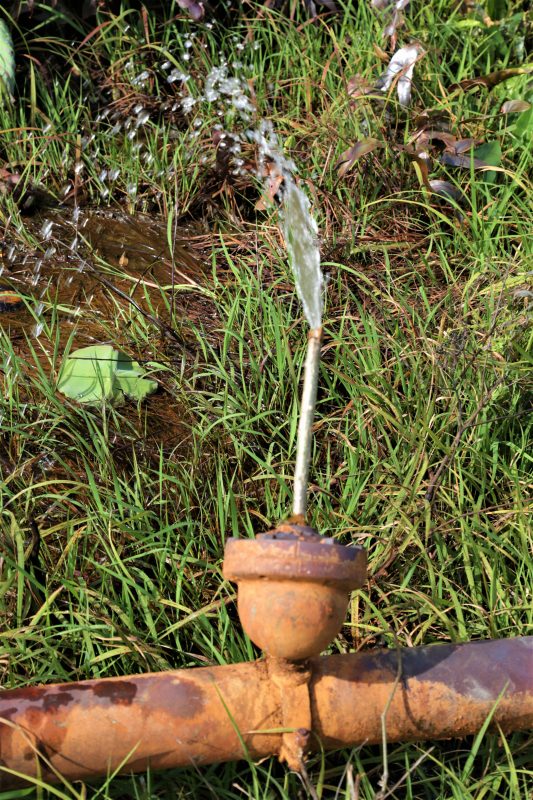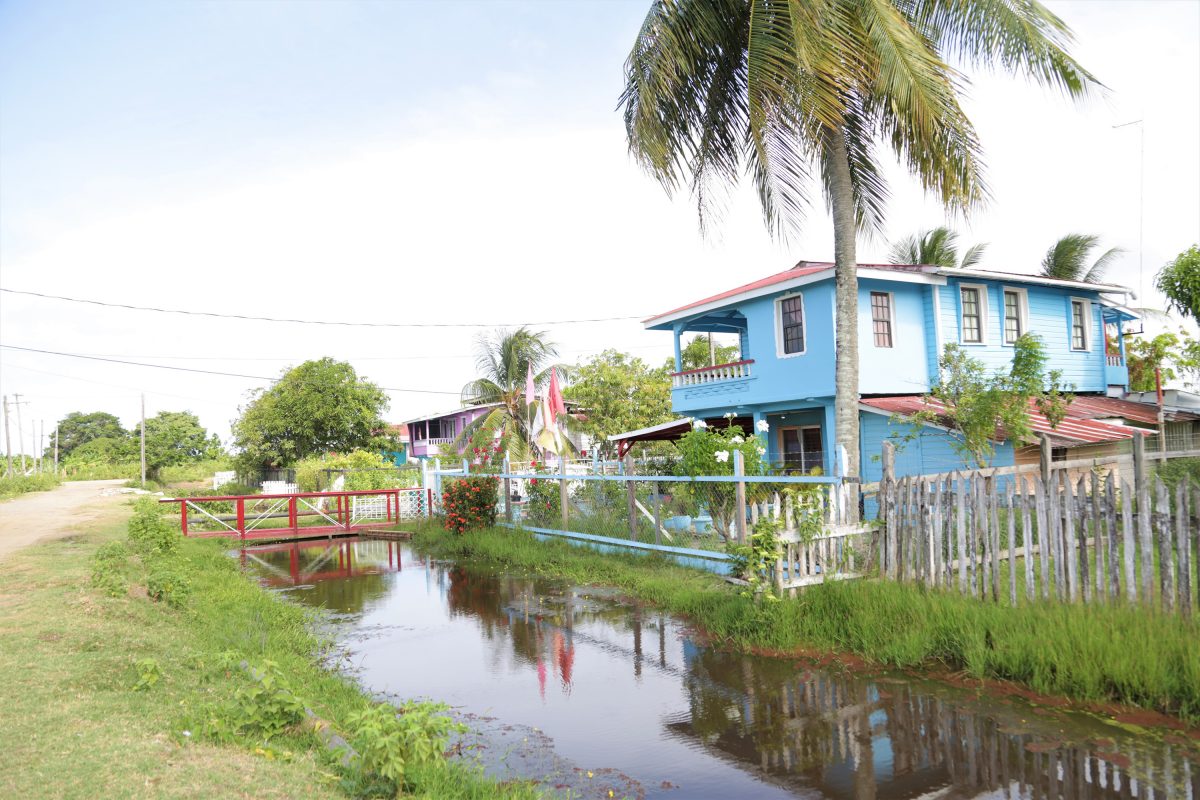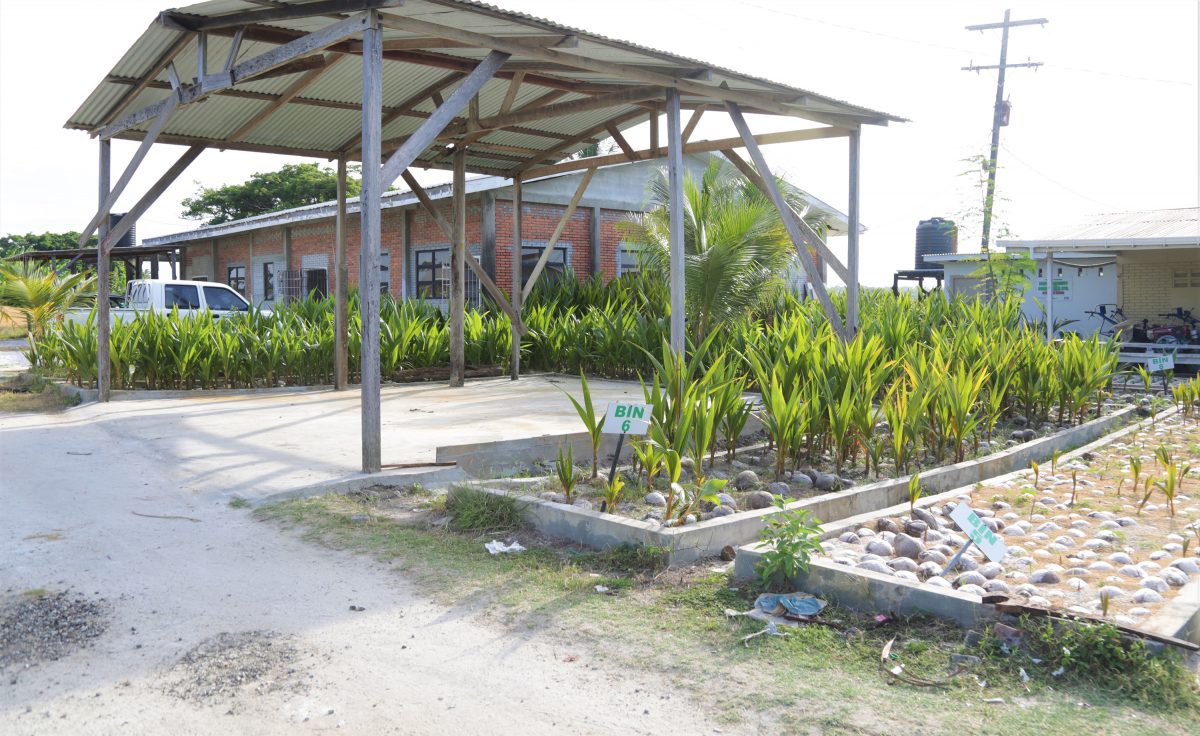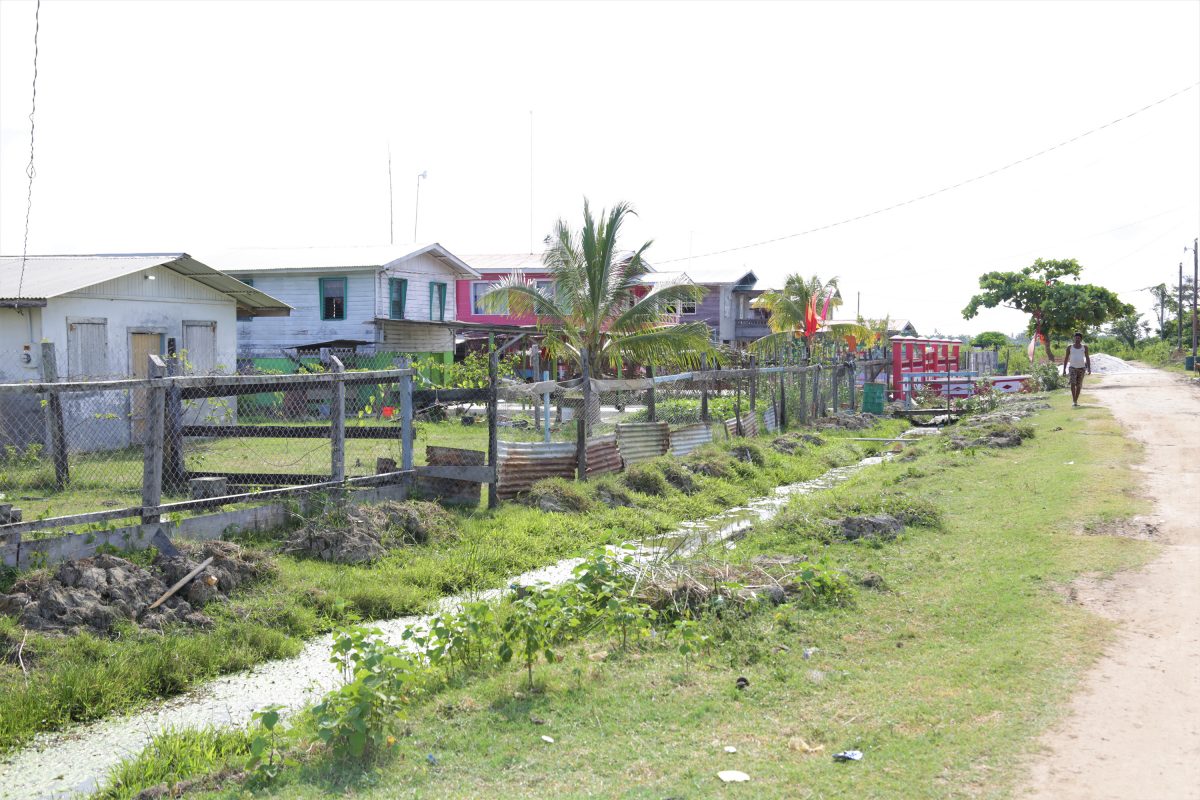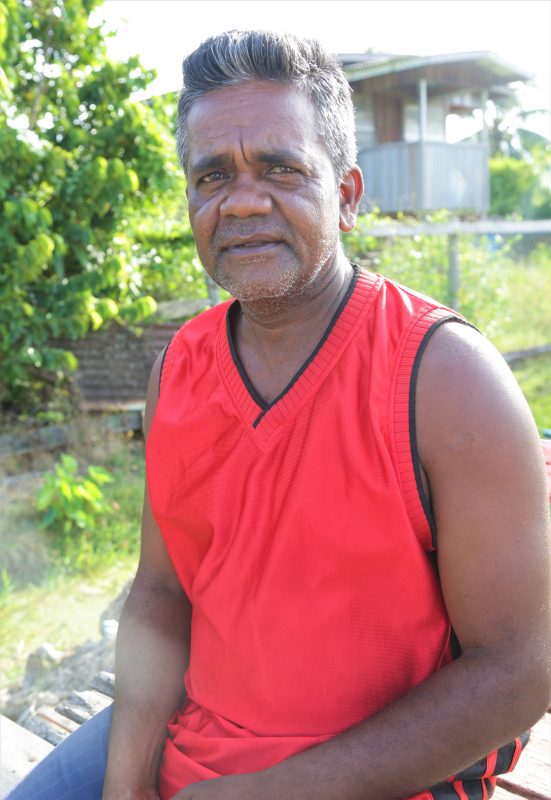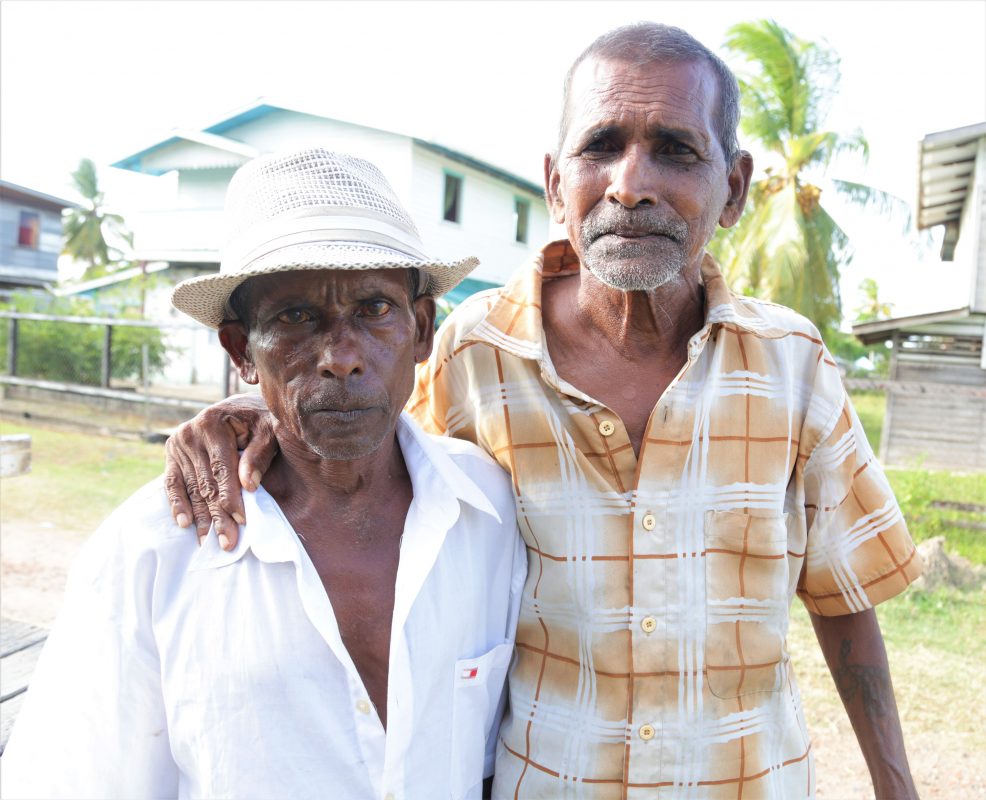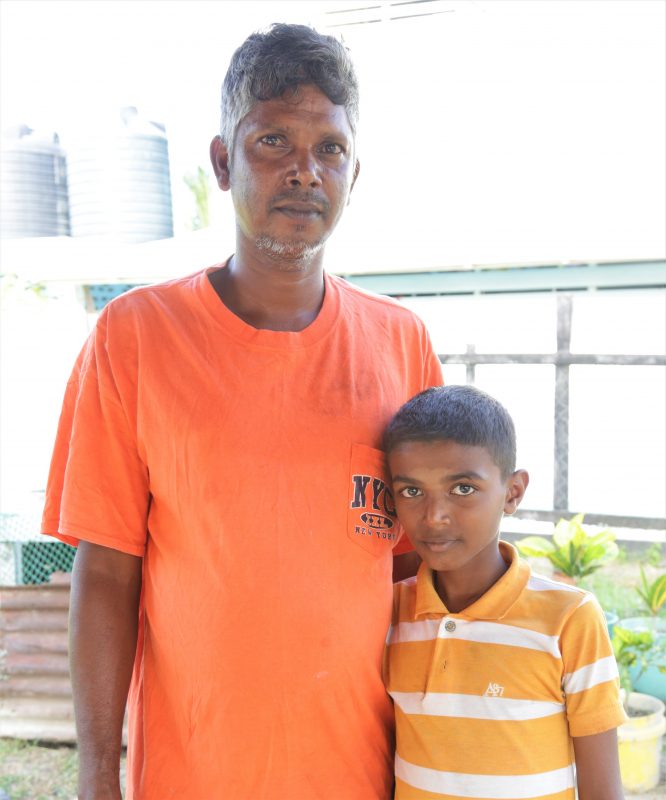What is known as the Old Scheme at Hope Estate lies at the far end of the village. Initially, it was known as Plantation Hope, but that was when the residents lived in logies.
Old Scheme is a quaint, close-knit community, where children still play on the road and hangout at neighbours’ homes.
Most of the residents are farmers; some do it full time, while others farm part time while holding down other jobs as maintenance workers with the Neighbourhood Democratic Council, or as drivers and teachers. Some residents work on the nearby coconut estate; several others have rented parts of the estate to do their own private farming, selling their produce wholesale or taking it to the Annandale or Mon Repos markets on Saturdays.
To get into Old Scheme, one takes a taxi from the junction with the East Coast Demerara road. The cost per adult is $100, but residents often choose to pay $300 for the trip rather than wait for the vehicle to fill up. My taxi driver gave his name as “Fat Bhai” and on learning the reason for my visit, pointed out the most suitable interviewee, and assured me, “… He tek something but don’t worry, he not drunk; he can still talk to you.”
Imbibing early in the afternoon on a weekday is not unusual in Old Scheme. I later passed several groups of residents enjoying afternoon drinks and learned that this was how the Hope Estate men finished the day they began in the farms.
I struck up a conversation with one of them, Parsram Budhu, who was born and raised in a logie on Plantation Hope with 8 brothers and 1 sister; only he remains alive today. “When [late president Forbes] Burnham tek power, he move abee from logie,” Budhu said. “Me grandparents them come from India. Burnham build 11 houses for 11 families. He tek way rice field from people and build house.
“When we used to live in logie, morning time ah ready fuh guh school, me nah guh wid dis yuh know [pointing to the slippers on his feet], yuh ah guh barefoot. Yuh used to drink yuh lil tea and suh and yuh gone. Yuh momma ah give you a big jill suh [showing the size of the coin] that coulda buy sugar cake and all kind ah thing man.
“The life was better enjoyment in logie. All like hay me gat to pay house tax, me gah pay water bill, light bill, rent fuh the land wah yuh ah plant. Long time yuh nah been ah pay dah but now yuh ah pay all dah.”
He pointed out some of the houses built under Burnham’s mandate, while adding that his house had later fallen and was taken apart after; he is now rebuilding. Budhu explained that his part of the village is called Burnham Scheme because the houses there were built under his tenure. Each house with its plot of land cost $16,000 and residents were allowed to pay in parts.
Later, more families from Plantation Hope began building their own homes and almost doubled the number of houses in Burnham Scheme. Burnham Scheme is situated a stone’s throw away from Jagan Scheme, but both are considered part of Old Scheme.
According to Budhu, the smaller area was given its name after it was said that late president Cheddi Jagan had provided this place for persons to live. Laughing, he added that New Scheme, Hope is called Bharrat Scheme because the residents there were given house lots by former president Bharrat Jagdeo.
At 67, Budhu no longer does much work except for sometimes cleaning the canals. Whenever he is at home, he helps to take his great grandchildren to school. Education, he said, is very important, adding, “if you think education is expensive, try ignorance”, but acknowledging that it was a borrowed quote. Budhu said that he often sees parents beating children for them to go to school and it would be better if the parents took them to school themselves instead of beating them. Nearby, his great grandchildren looked on. One was still in his school uniform with a badge that said, ‘Hope Estate Primary School’.
Speaking about electricity and potable water, Budhu noted that Burnham had seen to it that the village had water and electricity since in the 1980s.
Budhu took me around the community, including into Jagan Scheme. He pointed to the road as we went, saying that he and several residents had gone into one of the ministries seeking better roads; most of them are mud dams.
Starting back for Burnham Scheme, we passed a field of a squash and a kitchen garden of bora and callaloo.
‘Quiet and comfortable’
Vickram Ramjit lay in his hammock beneath his house. He said he was “catching” his breath as he had just returned from paying bills. His parents and some of his siblings were born in Plantation Hope and had experienced logie life, but not him. He was born on the West Coast Demerara and grew up with his older brother and his family. He made the move to Old Scheme, Hope 15 years ago.
Ramjit said that where he grew up in Parika there were better places for planting, but he decided to follow his parents and settle in Old Scheme. He farms on a small scale in the backdam planting cash crops and lots of peppers.
“For me living here is good because I don’t have to go out on the road when I need vegetables to buy and there is a shop in the village that sells everything when it comes to rations [groceries],” Ramjit said. If he needs something he does not grow, he knows he can get it at a discount from another farmer. “It’s quiet and comfortable here. Everybody does come together and lime at each other here. There’s hardly any vehicles running the village, so the children can play in the road.”
Ramjit’s farm is 20 minutes away on foot and when he is coming out with his produce other farmers with vehicles would offer him a lift out of the backdam.
But he said that he has noticed since the current government came into power that there is not much of a market and there are frequent occasions when he would have surplus produce that he cannot sell. Having produce spoil can be difficult, Ramjit said, adding that he and other farmers take much precautions to avoid their plants getting diseases by purchasing pesticides and fertilizers. A few weeks ago, he began noticing that the cost for vegetables increased and that has helped a bit.
Ramjit is the sole breadwinner of his family and has 3 children attending 3 different schools. The youngest, a boy, attends Hope Estate Primary while his older girls attend Ann’s Grove Secondary and Lancaster Secondary. His children usually join with others and pay the $300 taxi fare to take them to the main road from where they take minibuses to their schools.
Mohanram Mohabir sat outside his home keeping an eye on his caged pet bird. His early life found him living in Plantation Hope and he added that the coconut estate was already there when he was born. He recalled that it had once been owned by the Sankar family.
Mohabir lives in the last street in the community. “Them street them hay, abee build them wid bun brick,” he told me. “Them people [the current administration] nah do nothing fuh this community. When rain fall, at the back there in Jagan Scheme them people don’t have no road to walk on sometimes.”
Mohabir said that when he first moved to Old Scheme, he had someone run pipes into his yard so that he had access to water, but the Guyana Water Incorporated (GWI) later cut off the water as well as that of some of his neighbours. The man shared that when he went to GWI to rectify the situation, he was asked to pay $8,000 and to get his TIN certificate. When he returned a second time, he was told that he owed $16,000. Mohabir said he was called in a third time and told he owed $32,000, which he cannot understand since the company claims to have no registration for him. He believes therefore that he is not obliged to pay anything and plans on returning to ask for a new line instead of trying to get the current one working again.
Mohabir is a labourer at the coconut estate, he also works as a security guard.
